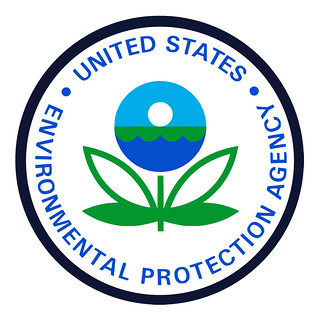
On top of the relinquished economic benefits from fracking due to the moratorium, Fort Collins currently faces an expensive lawsuit by the Colorado Oil and Gas Association.
Whether Fort Collins has the right to ban the practice is up to debate, but whether citizens of Fort Collins brought this expense upon themselves is not. However, there is a simple solution to the problem: remove the moratorium.
Presumably the moratorium passed because of health concerns related to hydraulic fracturing and horizontal drilling. And there are peer-reviewed research studies supporting these concerns.
A study by the Colorado School of Public Health, published May 1, 2012, confirmed in a three year study of Garfield County, Colo., that people living closer to wells were more likely to have health problems including eye irritation, headaches, sore throat and difficulties breathing with long-term risks of increased cancer rates, neurological issues and respiratory problems.
The study did not actually report individuals’ adverse health conditions, it just assumed those health problems would occur based on the chemical findings compared to the EPA’s standards.
The real toxicity of the emissions could be overstated by EPA standards, although not all of the chemicals found in the air were rated for toxicity by the EPA.
“The greatest health impact corresponds to the relatively short-term, but high emission, well completion period,” said Dr. Lisa McKenzie, the study’s author.
Before this study was published, but after the research was complete, the EPA mandated controls on well emissions. On April 17, 2012 the first federally mandated air standard regulations for hydraulically fractured wells were adopted by the EPA in accordance with the Clean Air Act.
The New Source Performance Standards require wells emitting over six tons of volatile organic compounds a year to implement controls reducing the emissions of VOCs by 95 percent. Some VOCs are sulfur dioxide, air toxins such as benzene and methane.
There are less than 500,000 active natural gas wells in the US, according to the Energy Information Administration. One million wells producing an average of six tons of VOCs would make up less than half of the 13 million tons of VOCs emitted during 2012, according to EPA’s national emissions estimate.
But, a quarter of the national emissions is nothing to sneeze at, which is presumably why the regulation was put in place. Not only is it healthier for the surrounding people and environment to keep the gas from being released into the atmosphere, but it also promotes the efficient use of all the resources a well produces.
But, the air is not the only concern for environmentalists who value safety over economic gain.
Another study published June 3, 2013 by Duke University, measured the amount of methane in the water close to fracking operations in Pennsylvania. They found methane concentrations were six times higher within one mile of operations than outside that radius. But, methane is not dangerous.
“Outside of the extreme cases of explosion, flammability, and asphyxiation, methane is not typically viewed as a health hazard…,” said Duke University scientists in a paper published by the Center on Global Change in 2011. “Nonetheless, we found essentially no peer-reviewed research on its health effects at lower concentrations in water or air.”
There are no recent studies on the health effects of drinking methane. But, people naturally produce methane within their bodies. The most damaging thing about methane is that it holds over 20 times more heat than carbon dioxide, making it a dangerous greenhouse gas, according to epa.gov.
Concerns about the fracking fluid are unfounded for multiple reasons. First of all, fractures occur over a mile underground, whereas the aquifer lies only a few hundred feet underground. The earth separates the fractures from the water, which is a natural barrier. Regulations require wells have a metal pipe and a concrete casing extending below the aquifer to ensure leaks do not occur.
Secondly, most fracking fluids are not toxic. Reports surfaced in 2011 that former Governor John Hickenlooper tested fracking fluids by drinking an unclear amount of CleanStim.
There are unresolved concerns about fracking, like the amount of unrecoverable water used in each operation and the seismic activity fracking causes, but these are not arguments that question the health effects.
The EPA has done its job protecting citizens from the possible negative effects of fracking, now it is time for the people to take advantage of the economic benefits.
Collegian Editor at Large Daniel Sewell can be reached at community@collegian.com. Daniel Sewell also works for the Center of Public Deliberation.





